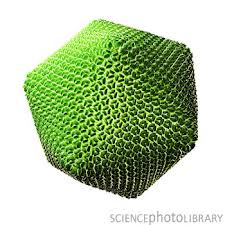 Chlorella is a single celled algae with a spherical shape. With an impressive amount of protein, chlorella is a highly attractive food source because of its high nutritional value. While relatively unknown beyond health food stores, commercial production of chlorella has increased significantly in the past few years, making it more and more assessable to every day consumers. The first known use and study of chlorella can be traced to the 1940’s when a fear of uncontrollable population growth required finding a food to feed an ever increasing population. Searching for a food with high nutrition and low maintenance, chlorella was deemed to be the perfect food. For this reason, chlorella is sure to become an important food of the future.
Chlorella is a single celled algae with a spherical shape. With an impressive amount of protein, chlorella is a highly attractive food source because of its high nutritional value. While relatively unknown beyond health food stores, commercial production of chlorella has increased significantly in the past few years, making it more and more assessable to every day consumers. The first known use and study of chlorella can be traced to the 1940’s when a fear of uncontrollable population growth required finding a food to feed an ever increasing population. Searching for a food with high nutrition and low maintenance, chlorella was deemed to be the perfect food. For this reason, chlorella is sure to become an important food of the future.
Key Nutrients
Chlorella is one of the best sources of protein on the planet. It is also an excellent source of vitamin B6, magnesium, vitamin A, thiamin, riboflavin, niacin, iron and zinc.
Health Benefits
Vitamin A – Vitamin A, when converted into retinaldehyde, is a vital compound for healthy eyes. Furthermore, vitamin A is believed to fight against cataracts, macular degeneration and glaucoma. Vitamin A strengthens the membranes of the human body such as mucous membranes, respiratory, urinary and intestinal tracts. It is also essential for the lymphocytes, or white blood cells, that fight infection once in the body.
Vitamin B1 – Thiamine is an important vitamin since it breaks down sugars in the body. Thiamine also helps to support nerve and heart health.
Vitamin B6 – Vitamin B6 helps to keep your immune system in good working order. It aids in the breakdown of fats, carbohydrates and amino acids while helping to maintain the health of lymph nodes. Additionally, vitamin B6 helps to regulate blood glucose levels.
Vitamin B9 – Folate is an important vitamin for liver function.
Vitamin B12 – Vitamin B12, or folic acid, helps to preserve neurological function and DNA synthesis. It also plays a key role in the health of red blood cells. The nervous system relies on vitamin B12 for proper function as well.
Iron –Iron, found in red blood cells, is an integral part of hemoglobin. Hemoglobin carries oxygen from the lungs to the cells. Iron is an essential component of many enzymes necessary for various chemical reactions in the body.
Zinc – The health benefits of Zinc include proper functioning of immune system, digestion, control of blood sugar and energy metabolism.
Magnesium – Magnesium helps to keep muscle and nerve tissues functioning normal, as well as promotes a proper heartbeat. It also assists in the support of a healthy immune system and keeps bones strong.
Season
Chlorella can be found in any supermarket or food retail store year round.
Nutrition Information
Per 100 grams:
Calories (cKal): 411
Protein (grams): 58.4
Total Fat (grams): 9.3
Carbohydrates (grams): 23.2
Fiber (grams): 0.3
Buying and Storing
When buying chlorella, make sure it comes from a reputable supplier or supermarket. Since it is sold in a concentrated powder form, chlorella can store in your kitchen for up to one year, provided it is kept in a sealed container.
Best Way to Add to Diet
Chlorella can be added to any smoothie or juice recipe. Try adding a bit of chlorella to spinach puree or pesto for a bit of extra nutrition and taste. Finally, add some chlorella to a salad for an extra dose of protein.
Chlorella Recipe
Soup of Chlorella and Swiss Chard

 Not Sure What Healthy Foods To Eat?
Not Sure What Healthy Foods To Eat? This week we take a look at one of my favorite healthy foods...the mighty Avocado.
This week we take a look at one of my favorite healthy foods...the mighty Avocado.
No comments yet.